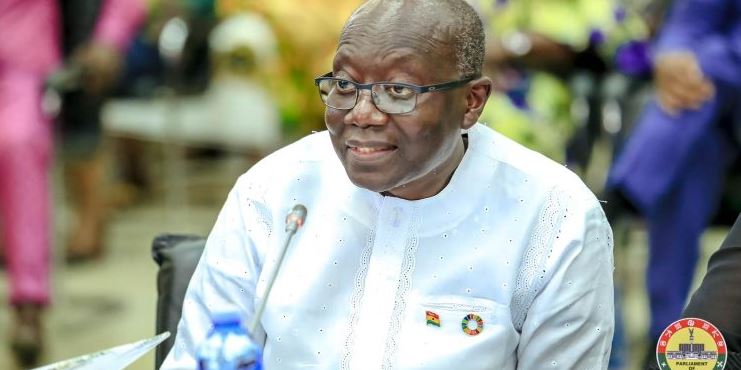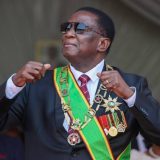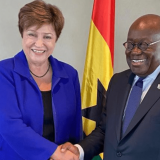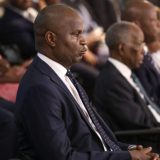The International Monetary Fund (IMF) will provide Ghana its first instalment of roughly $3 billion by the first quarter of 2023, according to the Finance Minister, Ken Ofori-Atta.
The Minister claims that the medium-term macro-economic framework, structural reforms, and important fiscal measures included in the 2023 Budget are in line with the IMF-supported Programme.
On economic policies and reforms, Ghana has secured a staff-level agreement that will be supported by a three-year arrangement under the Extended Credit Facility.
The Minister stated that additional work must be done before the first tranche can be handed to the government in order to obtain the approval of the IMF board and management, adding that the SLA is only one part of the approval procedure.
In order to ensure that the 2023 budget and other revenue measures are passed in the house, he called on all parties, particularly Parliament.
When asked when the first tranche will be received during a news conference with IMF personnel in Accra on December 13, 2022, the Finance Minister responded, “Ghana stands ready to complete all the earlier activities before the first quarter of 2023. We are dedicated to the programme as a whole and will contribute in a positive way“.
“More is yet to be done to secure IMF board and management’s approval and that is what we all as Ghanaians should ensure that it goes through. Its therefore crucial we receive support from all stakeholders, especially Parliament to ensure that the 2023 budget and including all revenue measures are passed”.
In order to maintain order and moderation while the government awaits the IMF Board’s approval, Mr. Ofori-Atta asked the people of Ghana.
“We hope that Ghanaians will continue to support all efforts to restore macroeconomic stability and promote robust and inclusive growth. vii. We are confident as a resilient people, and we shall rally to this great enterprise, to restore macroeconomic stability and promote robust and inclusive growth.
The world is looking at us, and I know we can do it. To God indeed be the glory for the great thing he hath done within 5 months.
Let us continue with courage, the spirit of love for each other and self-discipline to go through this together,” the Finance Minister said.
“We can only get to the IMF Board if we get sufficient commitment from our creditors in support of the debt operation. i. The 2023 Budget is anchored on increasing domestic revenue mobilization effort by 1.2 percentage points of GDP. On the expenditure side, the 2023 Budget proposes to reduce expenditures (on commitment basis) by about 2 percentage points of GDP from 2022 to 2023. Primary expenditures are expected to be reduced through a reduction in allocation on the Use of Good and Services and Domestically Financed Capital expenditure on a commitment basis,” the Finance Minister said.
This, the Finance Minister said, “These fiscal adjustments alone are not enough to address the country’s economic challenges, hence the ongoing debt restructuring aimed at restoring debt sustainability in the medium-term”.
On his part, the IMF Mission Chief for Ghana, Stephan Roudet said, “We have been engaging very closely with Ghana and I’m extremely pleased to announce that the IMF has reached the staff agreements with Ghana”.





